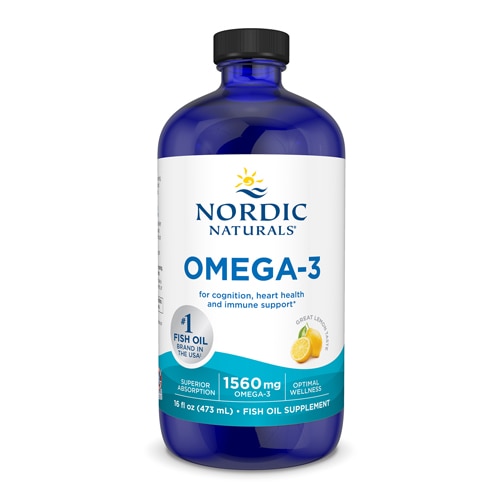You’re taking fish oil to increase your intake of important omega-3 essential fatty acids—and that’s a good thing. What’s not so good is that awful taste or burning sensation that comes back and lingers after you swallow the capsules or a spoonful of the liquid. “Fish burps,” as they’re sometimes called, are not only uncomfortable, they’re a reason many people stop taking these healthy supplements—or hesitate to try them in the first place. Before you cast aside your bottle, try these tips for taming your fish oil experience.
Stick with liquids
This may sound like the exact opposite of the advice you’d expect for preventing a fishy taste in your mouth, but liquid fish oils won’t repeat on you the way capsules do. Just be sure to brush your teeth after you take it to avoid any residual, lingering oil. Most liquid fish oils, such as Nordic Naturals Omega-3, are flavored and don’t have a fishy taste. It just tastes like lemon!
Catch a meal first
Omega-3 fats occur naturally in fish, which, when eaten as a food, seldom causes intestinal discomfort. If you take fish oil with food, your body will absorb it better, as your digestive system is turned on to digest the wide variety of nutrients—protein, carbohydrates and fats—in your meal. It’s best to eat something, then take your capsules, then eat a little more in order to “sandwich” your pills between layers of food.
Enzyme action
Another way to ease any potential discomfort is to take digestive enzymes with your fish oil supplements, to support healthy digestion. Lipase, specifically, is an enzyme that helps your body to digest fat. It can be found in many products that support digestion, such as Vitacost Mega Digestive Enzymes with Pancreatin 10X. Two tablets provide 10 milligrams of lipase, enough to help you digest not only the fat in your meal, but also in your friendly fish oil fats.




